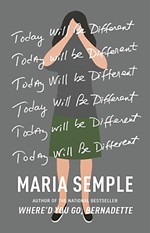Plays in Our Stocking
A Few Dramas We Want St. Nick to Give Austin Theatre
By Robert Faires and Adrienne Martini, Fri., Dec. 20, 1996
 illustration by Robert Faires |
Then we thought about plays.
Now, you probably figure that with some 240 productions every year, Austin's loaded for bare where plays are concerned. Well, it is true that we already have a lot of dramas here, but it's a funny thing: We have a lot of some, not so much of others. That is, certain plays or kinds of plays are produced here in abundance, and others aren't. For instance, over the last few years, we've had a steady drizzle of work by A. R. Gurney -- Love Letters, Later Life, Love Letters again, and Sylvia -- and this year we had a sudden downpour of plays by Caryl Churchill -- a staging of Top Girls and two of Mad Forest (!) in the spring and this fall a Vinegar Tom. But where August Wilson is concerned -- to pick the name of an important modern playwright whose work has been produced here with some regularity in the past -- we're in a bit of a drought; we haven't seen a local staging of one of his plays since Boyd Vance directed Joe Williams Has Come and Gone at the Zachary Scott Theatre Center in 1992. Among classical authors, Chekhov and Ibsen come round our stages with some frequency, but neither Shaw nor Strindberg get to visit much nowadays. And poor Shakespeare has local companies practically falling all over each other to stage certain of his plays -- there was that recent season of the three Macbeths and we're presently in the midst of one with twin Twelfth Nights -- but other works by the Bard -- Coriolanus, Richard II, Henry IV -- go perpetually untouched here.
We know the reasons that certain plays get produced here vary. In a few cases, you have plays which will always be staged over and over; they're like the weather. Productions of A Midsummer Night's Dream are as inevitable as heat in August. The play has an enduring appeal to audiences and appears to offer an irresistible lure to theatre artists (in this category, place also Three Sisters, A Streetcar Named Desire, and Rosencrantz and Guildenstern Are Dead).
In other cases, you have plays which are hot, either culturally or commercially. The play that has won a Tony or Pulitzer or some other notable prize or that has inspired some critical buzz or that has been made into a major motion picture may win a local staging based on the strength of that and the likelihood that Austinites will want to see it. Then there is A Christmas Carol, which speaks for itself (as do the rapidly multiplying herd of other plays with Christmas in the title).
Still, probably the biggest factor in determining which plays are staged in Austin is the interest of Austinites. Just like politics, all theatre is local; it is driven and to a great extent succeeds on its connection to the community. A playwright's work strikes a chord in an Austin artist and that person is drawn to produce it here. Or once produced here, that work strikes a chord with audiences, who attend in large numbers for it and inspire local artists to produce more of the playwright's work. Sometimes it's both. You have Dave Steakley, who loves pop music, staging the pop revue Beehive. Austinites turn out in droves for it, and we get not only annual revivals of Beehive but the spin-off Rockin' Christmas Party and similar fodder, such as Forever Plaid. In the Eighties, this synergy made Austin a prime place to see multiple works by Alan Ayckbourn, Christopher Durang, David Mamet, Joe Orton, Sam Shepard, and Tennessee Williams.
As to why certain plays don't get done locally, the reasons are fuzzier. (People tend not to talk very much about why they didn't do a show -- and considering how many shows people don't do, they wouldn't have the time to talk about them all anyway.) Still, you can postulate a few likely factors, some having their roots in practical considerations -- companies not having the funds to mount Angels in America or Peer Gynt (at least in the way that they'd like); feeling that Timon of Athens or Ghosts aren't big draws at the box office; being unable to reconcile conflicts in scheduling with the artists needed to mount The Piano Lesson -- and some being grounded in creative concerns -- maybe nobody in town really gives two hoots for the work of that old windbag Shaw. Of course, you can't rule out unfamiliarity with a playwright's work. Sometimes plays aren't done simply because companies haven't read the plays.
With this last idea in mind, Santa, we'd like you to drop a few scripts our way this holiday. They're plays that we haven't seen done in town, but we think they fit in the mold of shows that our theatre community has proven that it likes and can do well and that audiences have supported. They reflect our city in certain ways -- in dealing with music, with polarized factions within communities, with the tension between staying as we are and changing -- and they reflect our tastes -- in inventive language, in dark humor, in lyricism. We can't say for sure that folks here haven't read them, but on the off-chance that they haven't, bring us some copies, would you? They might spark something that our town hasn't seen yet.
* Mojo, by Jez Butterworth
Our friend Elizabeth Richmond-Garza of the UT Department of English suggested this one to us. She says that it's "about the Soho rock music scene in 1958, about the various people who are trying to get the shows on and about the British learning to be American rock musicians. It's very, very, very funny, extremely satirical," with an edginess of language and a bit of violence to it.
* After Easter, by Ann Devlin
Another recommendation from Richmond-Garza, this tale of three sisters, one of whom is considered mad because she thinks she's hearing voices telling her to do things, melds political tension and imaginative power. "It has very bold scenes, like Special Forces coming onstage with sub-machine guns, and dream visions and surrealist touches," says Richmond-Garza. "It also has the new way of thinking about Ireland. It's the only play I know by a Northern Irish playwright that has a moment of sympathy for a British soldier, which is a big deal. It's a really remarkable play."
* Just about anything by Horton Foote
This gentle and eloquent Texan has spent a half-century harvesting thoughtful, compassionate drama from his native soil. Last year, he won a Pulitzer Prize for Drama for his play The Young Man From Atlanta, yet the last time a local company produced one of his plays was 1989. We have a deep reservoir of talent that can convey the intimacies of Texan life, and local audiences are clearly in love with Texas plays. It would be so lovely to share with them one of the state's best.
* Valley Song, by Athol Fugard
This South African dramatist has never been widely produced in Austin and that's a shame. His works, in which he wrestles with the deep divisions in his homeland, brim with intelligence and power and humanity. Richmond-Garza prizes this, his most recent play, which pits a young woman wanting to leave her rural home to pursue a career in music in the city against the old man who wants her to stay: "It's about the new South Africa, about the younger generation that doesn't live under apartheid. It's thinking about, `Do you really have possibility or do you really not have possibility, and does embracing the possibility involve giving up things?' The characters are very sympathetic and very rich."
* Cinders, by Janosz Glowacki
This work by an Eastern European is set in a girl's detention center, where a filmmaker has come to make a movie of the inmates' production of Cinderella. And he is willing to use any means neccessary to get what he wants. The piece speaks to issues of repression, manipulation, sexism, power, illusion, and art, among other things. It is one of those theatrical Chinese boxes -- a play within a play within a play -- that can be so compelling. It has terrific roles for women, and its potential for ensemble work is great.
* The Secret Rapture, by David Hare
The recent production of Racing Demon was the first time this brilliant British social dramatist has been staged locally. It proved that he has much to say to Austin, and our friend Richmond-Garza notes that this play "is about over-fast property development and expansion. There's a whole series of plays from the late Eighties, like Michael Frayn's Benefactors and Hare's Secret Rapture that were either aimed at Reagan or were aimed at Thatcher that would probably be very funny and very relevant, as they say, in the context of this uncontrolled expansion of the city of Austin."
* The Wall of Water, by Sherry Kramer
Sherry Kramer knows how tangled the desires of end-of-the-millennium Americans are, and in her plays she details the snarled mess of anxieties and yearnings that passes for romance these days. In this work, she plays that mess for laughs, criss-crossing the encounters of a curious assortment of singles in a New York apartment: biologists, mental patient, party gal, health worker, et al. The show is full of sharp, funny observations on modern life and love, and it builds into a mad farce, with a wildly fantastic, over-the-top climax.
* Zoot Suit, by Luis Valdez
"Valdez is somebody who should be performed here," says Richmond-Garza. "He's the only broadly successful Hispanic playwright in the country in a lot of ways. He's the only one who's had a Broadway hit, for instance." His work speaks to the Hispanic experience in Anglo America, but it crosses the divide of theatre for a monocultural audience, and Austin needs that, Richmond-Garza says. "You have theatre done in Spanish, but it's for a Hispanic community, and you have theatre done in English for the English community, but the thing about Valdez's work is that it's an attempt to desegregate those audiences by having a play that's literally bi-lingual."
* Terminal Hip, by Mac Wellman
Wellman has a keen interest in language, which he takes to a fascinating extreme in this one-act. The format is a lecture or speech to the audience; the thing is, while all the words that the speaker uses are English, their meanings are scrambled. At first, they sound like random stringing of nouns and verbs and adjectives, a meaningless jumble. But sense can be made of them and as the speaker continues, one begins to grasp meaning and hear in a new way. It's savvy, funny, and a thrilling challenge for a bold actor and director.
By the way, Santa, this is in no way a complete list. It doesn't include Edward Bond, John Guare, María Irene Fornes, Philip Kan Gotanda, David Henry Hwang, Terrence McNally, John Osborne, Suzan-Lori Parks, Tom Stoppard, or any of a number of late 20th-century playwrights who aren't produced here very often, if at all, and it doesn't touch the classical writers at all. We didn't want to omit them; we just didn't want to load you down. Feel free, though, to bring by any other plays you think we could use.
Yours truly,
Robert & Adrienne
Special thanks to Elizabeth Richmond-Garza, UT Department of English, for her insights and suggestions.










